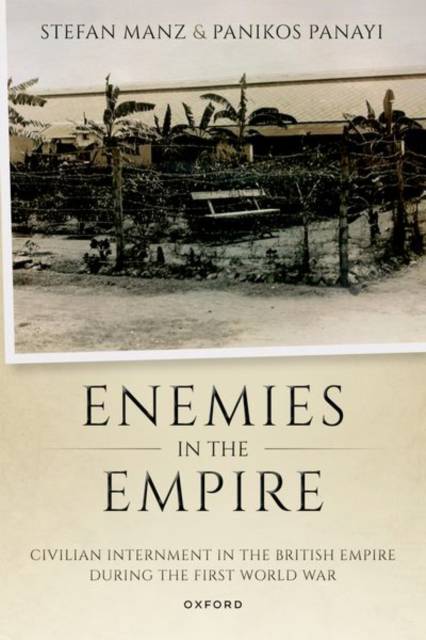
Bedankt voor het vertrouwen het afgelopen jaar! Om jou te bedanken bieden we GRATIS verzending (in België) aan op alles gedurende de hele maand januari.
- Afhalen na 1 uur in een winkel met voorraad
- In januari gratis thuislevering in België
- Ruim aanbod met 7 miljoen producten
Bedankt voor het vertrouwen het afgelopen jaar! Om jou te bedanken bieden we GRATIS verzending (in België) aan op alles gedurende de hele maand januari.
- Afhalen na 1 uur in een winkel met voorraad
- In januari gratis thuislevering in België
- Ruim aanbod met 7 miljoen producten
Zoeken
Enemies in the Empire
Civilian Internment in the British Empire During the First World War
Stefan Manz, Panikos Panayi
Paperback | Engels
€ 67,95
+ 135 punten
Uitvoering
Omschrijving
During the First World War, Britain was the epicentre of global mass internment and deportation operations. Germans, Austro-Hungarians, Turks, and Bulgarians who had settled in Britain and its overseas territories were deemed to be a potential danger to the realm through their ties with the Central Powers and were classified as 'enemy aliens'. A complex set of wartime legislation imposed limitations on their freedom of movement, expression, and property possession. Approximately 50,000 men and some women experienced the most drastic step of enemy alien control, namely internment behind barbed wire, in many cases for the whole duration of the war and thousands of miles away from the place of arrest. Enemies in the Empire is the first study to analyse British internment operations against civilian 'enemies' during the First World War from an imperial perspective. The narrative takes a three-pronged approach. In addition to a global examination, the volume demonstrates how internment operated on a (proto-) national scale within the three selected case studies of the metropole (Britain), a white dominion (South Africa), and a colony under direct rule (India). Stefan Manz and Panikos Panayi then bring their study to the local level by concentrating on the three camps Knockaloe (Britain), Fort Napier (South Africa), and Ahmednagar (India), allowing for detailed analyses of personal experiences. Although conditions were generally humane, the operations caused widespread suffering. The study argues that the British Empire played a key role in developing civilian internment as a central element of warfare and national security on a global scale.
Specificaties
Betrokkenen
- Auteur(s):
- Uitgeverij:
Inhoud
- Aantal bladzijden:
- 384
- Taal:
- Engels
Eigenschappen
- Productcode (EAN):
- 9780198912156
- Verschijningsdatum:
- 24/09/2024
- Uitvoering:
- Paperback
- Formaat:
- Trade paperback (VS)
- Afmetingen:
- 20 mm x 226 mm
- Gewicht:
- 589 g

Alleen bij Standaard Boekhandel
+ 135 punten op je klantenkaart van Standaard Boekhandel
Beoordelingen
We publiceren alleen reviews die voldoen aan de voorwaarden voor reviews. Bekijk onze voorwaarden voor reviews.









